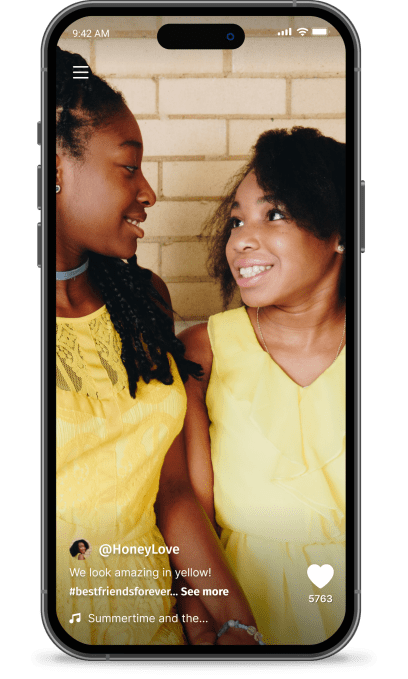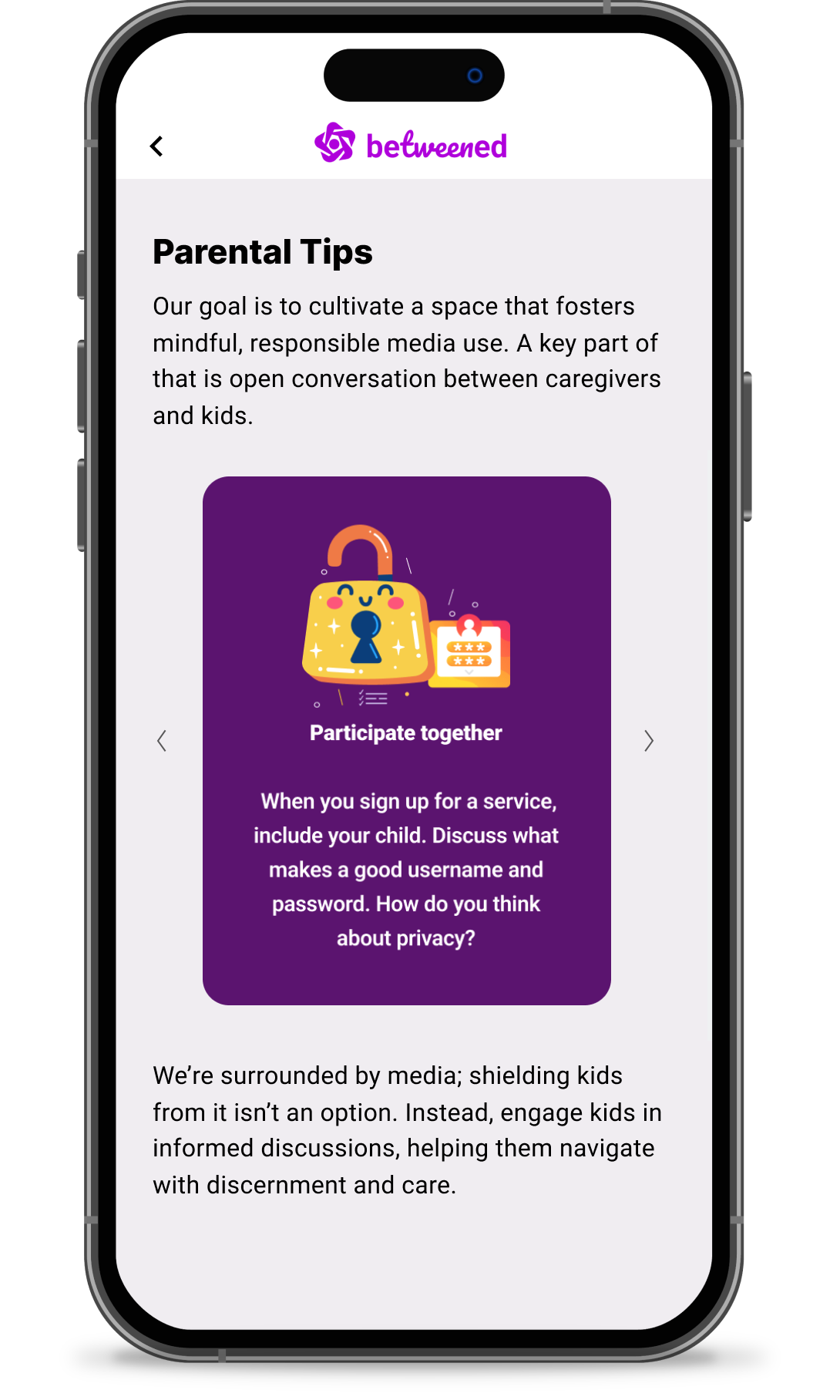Instead of adding parental controls to an already existing platform, Betweened is designed for kids

Keeping kids off social media is idealistic at best, and giving them access to it opens a Pandora’s box of privacy concerns. Tech giants have addressed stranger danger in the child-friendly versions of their social media platforms by adding parental controls and content filters to their existing product, with mixed results.
Betweened, a startup competing in the Startup Battlefield at this year’s Disrupt, goes a step further by designing a social media platform specifically for children — instead of modifying one already made for adults. Its private beta goes live this week.

The Betweened feed will feature curated, kid-friendly content from educators, brands and influencers. Courtesy of Betweened.
Betweened founder and CEO Carla Engelbrecht likened social media to driving. Like learning how to drive, kids need to understand privacy and develop media literacy to safely use the internet. Age verifications are notoriously easy to bypass, which lets minors access social media before they’re supposed to. Even if they wait until 13, which is the minimum age to use most social media platforms, “you don’t just hand them the car keys,” Engelbrecht said.
“I’ve seen so much of kids constantly wanting access to the things that are not made for them,” Engelbrecht continued. “If you wait until a kid turns 13, now they can use it without parental permission. But it’s not like they suddenly know what they’re doing.”
When she was a college student, Engelbrecht was shot in the chest by a 17-year-old. The random act of violence pushed her to dedicate her career to developing children’s programming, in hopes of creating content that could positively influence young people. She has been a staunch defender of video games, and as a developer herself, she has advocated for the educational potential that games have, from teaching kids critical thinking skills to demonstrating data visualization.
Bolstered with a doctorate in instructional technology from Columbia University and a résumé that includes Sesame Street and PBS Kids, she envisions Betweened as an alternative to short-form vertical video platforms. The platform is designed for six- to nine-year-olds and will “feel familiar” to appeal to kids who want “the real deal” instead of a watered-down version of an app. Like Instagram Reels and TikTok, Betweened has a discovery feed that serves age-appropriate content to its users.

Betweened encourages parents to talk to their children about social media, instead of sheltering them from it. Courtesy of Betweened.
Good UX design is often lacking in apps made for young children, Engelbrecht said, because developers assume that details will be lost on kids who can’t read yet. Betweened is not “chocolate-covered broccoli” — a bait-and-switch that tricks users into consuming educational content.
“The products that are most successful find the balance where it can be entertaining, and it can be educational, and you don’t have to hide it,” she said. “This is one of those things that Sesame Street does incredibly well. If you look at the songs, the way they approach the sketches, there’s just a patience and a bar on the content that I think ultimately really sets it apart.”
Advertising is a tricky beast, especially when it comes to children’s media. The Federal Trade Commission has cracked down on marketing to children, and under federal law, platforms must have parental consent to collect personal information from users under age 13. A recent FTC staff paper highlighted concerns over “blurred advertising” to children online, and questioned whether children are able to identify that an influencer’s enthusiastic product review is actually an ad. Despite the laws forbidding data collection from children, social platforms have been caught doing it anyway. Last month, a watchdog group called out YouTube for serving targeted ads on channels like “Cocomelon Nursery Rhymes.”
As a parent, Engelbrecht said she’d love to keep Betweened ad-free, but it’s not sustainable. Social platforms depend on ads for revenue. Instead, Betweened allows brands to create profiles and post content for kids, as long as they abide by the platform’s editorial guidelines. Since it’ll be “fully moderated and curated,” Engelbrecht plans to work with brands to create well-rounded videos that are clearly labeled as sponsored content.
“It is in our interest to teach our kids how to think about and process advertising,” Englebrecht said. “They will not be straight up advertising to kids, because it is so fraught from a privacy perspective. And we can bring the brands in as part of like, ‘Hey, this is how we help this generation grow.’ And then supporting parents, like ‘Here’s how to talk about this with your kids.’ You talk about it, you contextualize it.”
That’s the heart of Betweened: not shutting kids out of social media, but teaching them how to navigate it.
Source link

